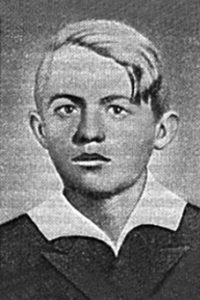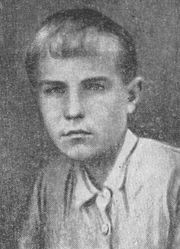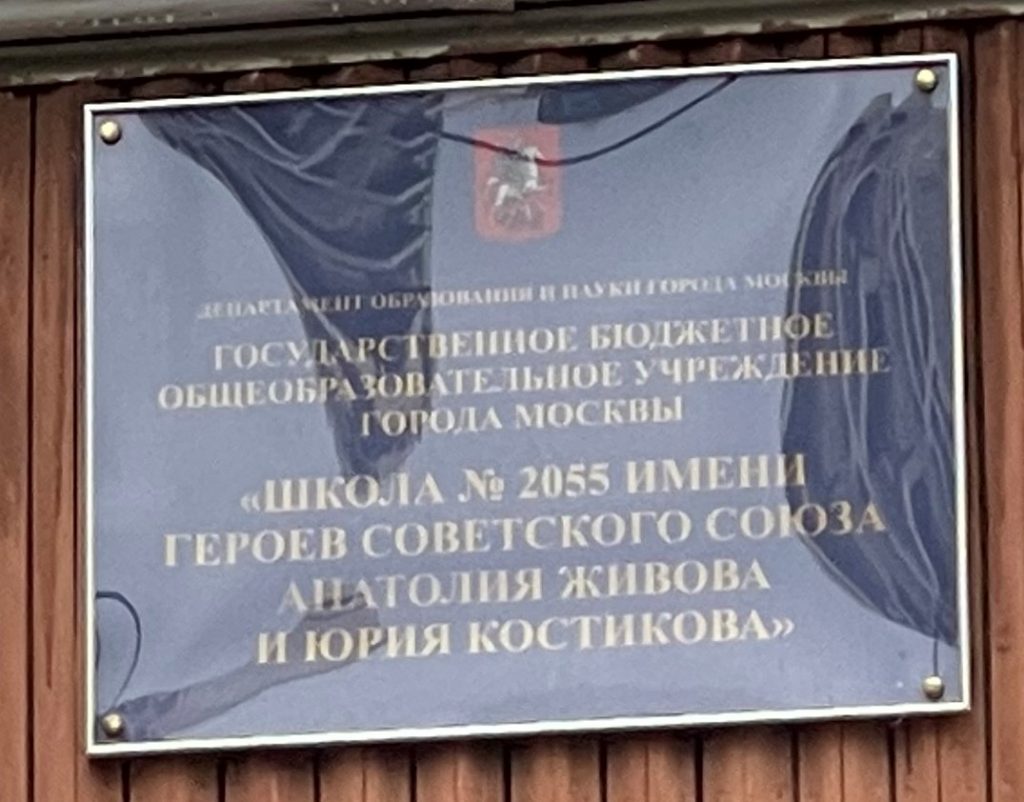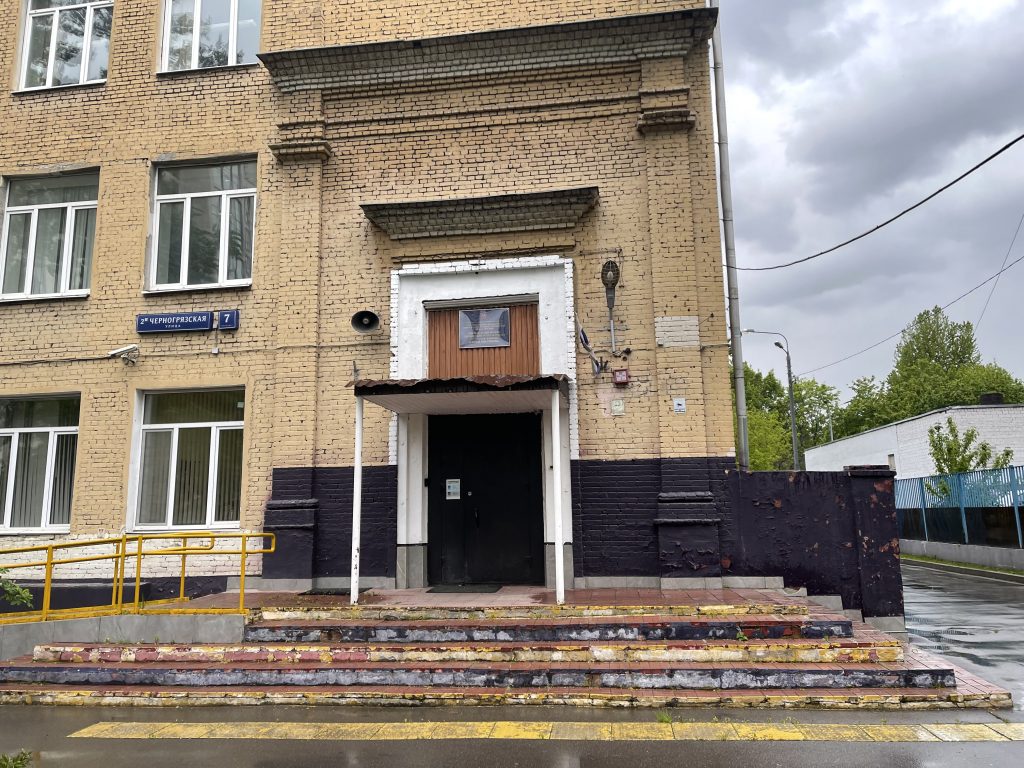Anatoly Pavlovich
Zhivov
1925-1944

Anatoly Pavlovich Zhivov was a telephone operator of the communications platoon of the 827th Rifle Regiment (302nd Rifle Division, 106th Rifle Corps, 60th Army, 1st Ukrainian Front), Red Army soldier, Hero of the Soviet Union. He was born in the village of Kuzmishchevo, Iskansky volost, Tarussky uyezd, Kaluga Province (now Tarussky district, Kaluga Region). Since 1931 he lived in Moscow, where he graduated from the 7th grade of school. In October 1940 – October 1941, he was a locksmith’s apprentice at Aviation Plant № 28 (production of variable pitch aircraft propellers). After the evacuation of the plant to Sverdlovsk, he worked as a machine shop turner at the Trekhgornaya Manufactory factory (production of fabric for army uniforms and ammunition). During the defense of Moscow, after work, he was on duty on the roofs of Moscow houses, extinguishing incendiary bombs and fires. In June 1942, he was sentenced to 2 years of correctional labor for negligence that led to the accident of the machine. He worked at the Dzhezdinsky manganese mine in the village of Manganese (now the village of Zhezdy, Ulytau district, Karaganda region of Kazakhstan). In the army since May 1943. He was trained in the reserve rifle regiment (in the city of Petropavlovsk, Kazakhstan), where he graduated from the courses of telephone operators. Participant of the Great Patriotic War: since October 1943 – telephone operator of the communications platoon of the 827th Rifle regiment. He fought on the 4th Ukrainian (October – December 1943) and 1st Ukrainian (January – April 1944) fronts. Participated in the Rivne-Lutsk and Proskurov-Chernivtsi operations. He especially distinguished himself during the Proskurov-Chernivtsi operation. On April 1-7, 1944, in the battle for the city of Tarnopol (now the city of Ternopil – the regional center of Ukraine), being a liaison from the battalion with the companies, he clearly and on time transmitted all combat orders. Under heavy artillery rifle and machine gun fire of the enemy, he corrected 7 gusts on the line. On the approach to the city center, the advance of the Soviet troops slowed down – the Nazis turned the city prison into a powerful stronghold. Loopholes were pierced in the one-and-a-half-meter walls of the prison fence and in the prison building itself, from which the enemy conducted intense machine-gun and automatic fire, controlling all approaches and intersections of streets. The enemy had 15 machine-gun emplacements, two 81-mm mortar batteries, several grenade launchers and three light cannons in this stronghold. All attempts to seize the prison were unsuccessful and led to great human losses. On the morning of April 7, 1944, an assault group under the command of the commander of the 1st Rifle Company of the 827th Rifle Regiment, Senior Lieutenant P.N. Artemenko, launched another attack. A.P. Zhivov volunteered to suppress the fire of an enemy machine gun with bottles with a combustible mixture. He crawled up to the embrasure and threw two bottles into it. The machine gun fell silent, but soon started working again. And then the wounded telephone operator, gathering his last strength, rushed to the embrasure and closed it with his body. At that moment, the assault group rose to the attack and in a fierce battle, which turned into a hand-to-hand fight, captured a house 100 meters north of the prison. For the courage and heroism shown in the battles with the Nazi invaders, the Decree of the Presidium of the Supreme Soviet of the USSR dated September 23, 1944, the Red Army soldier Anatoly Pavlovich Zhivov was posthumously awarded the title Hero of the Soviet Union.
Yuri Nikolaevich
Kostikov
1927-1945

Yuri Nikolaevich Kostikov was a sergeant of the Workers’ and Peasants’ Red Army, participant of the Great Patriotic War, the Hero of the Soviet Union. He was born in the village of Zazhovo, the Dzerzhinsky district, the Kaluga region, in a peasant family. In 1937, after the death of his mother, he moved to Moscow with his father. He studied at school № 83 in Moscow. In 1941, with the approach of the front, together with other children, he was evacuated from the capital. After returning from evacuation, he worked as a turner at an auto repair plant. In January 1945 he was drafted into the ranks of the Red Army by the Krasno-Presnensky District Military Commissariat of Moscow. He was at the front from that time. He participated in the East Prussian Operation. On April 8, 1945 the troops of the 3rd Belorussian Front cut off the garrison of Konigsberg (now Kaliningrad) from the Zemland group of Germans. Some parts of the garrison attempted to break out of the city in the 43rd Army band. One of these groups, numbering about three hundred people, reached the positions of the 261st Guards Rifle Regiment of the 87th Guards Rifle Division. The commander of the machine-gun crew of the guard, Sergeant Yuri Kostikov, guarding the headquarters of the regiment, found enemy soldiers who had entered the rear. Undeterred, he opened machine-gun fire and forced the enemy to lie down. The staff of the headquarters were alerted and a circular defence was organized. Kostikov participated in repelling three enemy attacks. When the cartridges ran out, he continued to fight with a machine gun and grenades. Being seriously wounded, he did not leave his position. In this battle, he destroyed about fifty enemy soldiers and officers, but he himself died at the same time. Thanks to the courageous actions of Yu.N. Kostikov, the attempt to break through the enemy was thwarted. By the decree of the Presidium of the Supreme Soviet of the USSR dated April 19, 1945, for “courage, bravery and heroism shown in the fight against the German invaders,” Guard Sergeant Yuri Kostikov was posthumously awarded the high title of the Hero of the Soviet Union. He was also posthumously awarded the Order of Lenin.
Address: Moscow, 2nd Chernogryazskaya str., 7, p. 1

